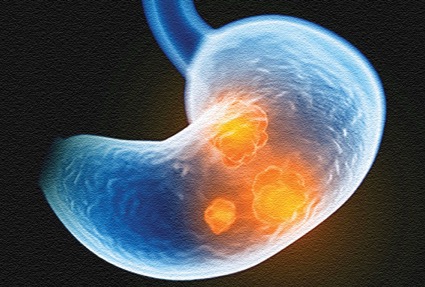
According to research presented at the Society of Surgical Oncology 2021 International Conference on Surgical Cancer Care, Medicaid expansion caused a decrease in uninsured patients and led to an earlier diagnosis of gastric cancer with an associated increase in one-year survival (abstract 95).
“Increased health care access may be associated with a shift toward earlier diagnosis with improved outcomes in gastric cancer,” said study author Clara Zhu, MD, of Cooper University Health Care in Camden, N.J., who presented the findings.
According to Dr. Zhu, the 2014 Medicaid expansion was intended to improve patient access to care. Some states elected to expand Medicaid, while others opted not to expand the program. Dr. Zhu and her colleagues hypothesized that Medicaid expansion was associated with earlier diagnosis and improved outcomes in gastric cancer.
To find out, Dr. Zhu’s research team turned to the National Cancer Database to identify patients with a new primary diagnosis of gastric cancer between 2006 and 2016. The researchers compared states that expanded Medicaid in 2014 to those that did not, excluding states that expanded earlier or later than 2014 and patients older than 64 years. Her research compared the pre- and post-expansion intervals 2012-2013 and 2015-2016.
The study cohort included 20,639 patients. Expansion states demonstrated a significant reduction in uninsured patients from 7.0% to 2.7% (P<0.01) compared with non-expansion states (14.2%-10.9%; P=not significant [NS]).
The researchers identified an increase in patients diagnosed with stage 0 to II gastric cancer from 38% to 41.5% (P<0.01) in expansion states, but found no change at 38.9% in non-expansion states. Patients 50 years of age and older diagnosed with stage 0 to II gastric cancer increased in expansion states from 38.2% to 42.5% (P<0.01), and in non-expansion states from 39.3% to 39.9% (P=NS). Uninsured and Medicaid patients diagnosed with stage 0 to II gastric cancer increased in expansion states from 32.4% to 37.8% (P=0.01), and decreased in non-expansion states from 29.7% to 27.3% (P=NS).
Patients receiving treatment rose from 91.6% to 92.2% in expansion states (P=0.01) and from 89.6% to 89.7 (P=NS) in non-expansion states. Rates of treatment for uninsured and Medicaid patients rose in 87.0% to 90.3% in expansion states (P=0.01) and from 83.9% to 84.9% in non-expansion states (P=NS). Twelve-month survival for patients in expansion states rose from 68.1% to 70.6% (P=0.03), but decreased from 65.2% to 65.1% (P=NS) in non-expansion states.
Dr. Zhu reported no relevant financial disclosures.

